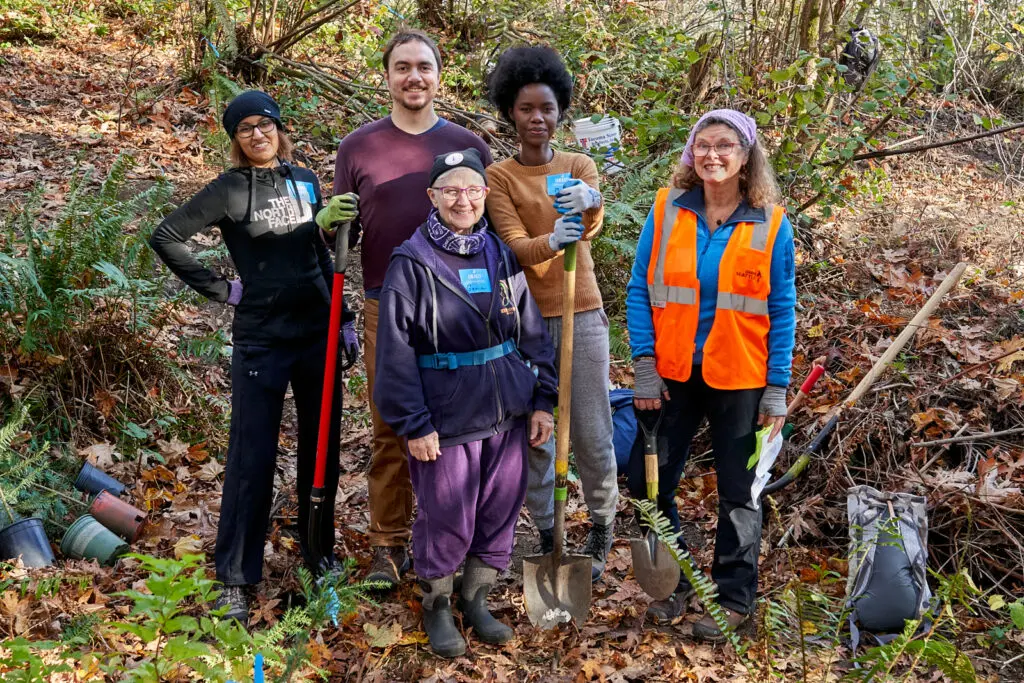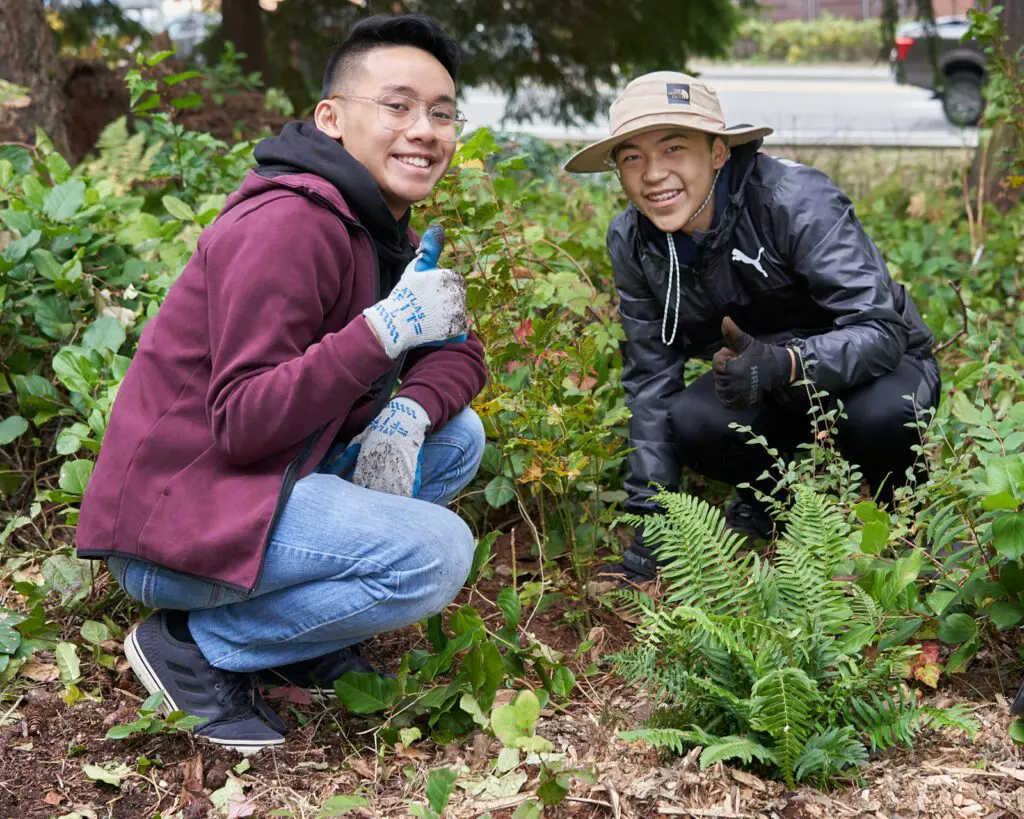First-of-its-kind survey across King, Snohomish and Pierce counties polls nearly 1,200 young adults
When it comes to naming their happy place, our Puget Sound millennials point to the outdoors and nature as most-favored destinations. That’s among the findings of a first of-its-kind study of Puget Sound millennials (people between the age of 18 and 35) carried out last fall.
The Livability Survey for Puget Sound Millennials was conducted by Forterra, a regional sustainability nonprofit, together with EMC Research, a pollster. The survey garnered input from 1,168 local millennials [300 interviewed by phone; 868 who filled out an online survey. By way of comparison, a recent national poll by the Pew Research Center surveyed 617 millennials in total.]
With roughly 240,000 millennials, King County is second only to Brooklyn in percentage of young adult residents. It’s also second among big counties nationwide in the percentage of people who moved in the past year from another state.
Other environmental-related findings (see rich detail in the accompanying slide deck):
CARE ABOUT THE ENVIRONMENT? Yes! Just don’t call me an environmentalist.*
- Homegrown millennials (those who grew up here) strongly reject the term environmentalist — more so than their peers across the country. That’s a surprise for a part of the country celebrated as ecotopia.
- *An interesting exception? Newcomer millennials. They are twice as likely to embrace the term.
- Labels aside, millennials overwhelmingly feel personally responsible to care for the environment. 94% say this.
- Millennials’ top environmental acts include recycling and composting, reducing consumption by buying used things and using public transportation.

YES, CLIMATE CHANGE IS REAL. And it’s maddening.
- The biggest environmental concern for millennials is climate change. Virtually no one surveyed doubted that it’s real and human-caused.
- More than half of all millennial transplants name climate as their top concern. One-third of all native millennials say this.
- Millennials strongly believe humans could reduce global warming. But they’re doubtful that we’ll actually do what’s needed.
- Less than a quarter of millennials believe that technology alone is a solution for global warming
- Other environmental concerns include animal extinction (native millennials), pollution (newcomers) and the health of our water (both groups of millennials).
Survey-taker quotes:
“No generation has been so completely and utterly screwed by the previous one.”
“We have had to deal with challenges no previous generation has had, all at once! Climate change, rapid technology growth, terrorism, worst economic downturn since the Depression.”


THE BEAUTY? Love it. RECREATION? Count me in.
- Like other residents, millennials revel in the beauty of the region.
- And they love to get out to enjoy it, with backpacking, hiking and camping the favored activity of 73% of respondents.
- Millennials say they love greenspace and open space both close at hand and farther afield — and they’ll drive to get there. That’s one reason that more than three-quarters own cars.


WANT MY BUSINESS? Be eco-minded.
- Millennials overwhelmingly rate social and environmental responsibility as important to their consumer choices.
- The same applies to their choice of places to work.


Implications of the findings.
Gene Duvernoy, president of Forterra, observes that: “Whether or not they embrace the label ‘environmentalist’ our region’s millennials have deep-seated environmental values. They feel a strong personal responsibility to do their part, and have a wide range of environmental concerns — with climate change at the top.
Their level of concern is not matched by comparable optimism, however. They feel let down by earlier generations, and see little near-term prospect of meaningful action to keep the planet from catastrophic warming — even though they think it’s within our power. And their outlook may now be still bleaker, given that the survey was administered before the November election.
Yet millennials, both those who grew up here and those who came later, deeply love the Pacific Northwest, its beauty and its opportunities for recreation. No less than earlier generations, they can be counted on to work hard locally and regionally to keep this place we live a place we love. And given the strength of their feelings, don’t count them out nationally as a force for renewed and vigorous attention to climate care.”
This is the third parcel of data being released by Forterra about Puget Sound millennials.
- The first parcel looked at how the progressive stronghold of Puget Sound is about to get even more that way, given the values espoused by young adults in the region, many of them new here.
- The second parcel detailed area millennials’ feeling about the area’s increasingly high cost of living, and what it may mean for their future here.
- This third parcel looks at millennials’ relationship to the land and environmental protection — including their pessimistic take on climate change.
- The fourth and final parcel considers millennials’ transportation choices.
A METHODOLOGICAL NOTE: We surveyed millennials in two ways: via phone and via the web.
- The phone millennials are a scientific sample. Based on the demographic data they supplied, we know that these millennials were mostly born in the local area; are more likely to be living with their parents (compared to their peers across the country); and/or are more likely to own a home.
- The web millennials are a convenience sample, taking part on an opt-in basis. These millennials are mostly newcomers from another state, are more likely to be living with their significant others (compared to their peers across the country), and are also overwhelmingly more likely to be renters.
The full presentation for Millennials: Environment & Recreation
More information about millennials polled in the Forterra/EMC Survey: millennialsurvey.com
###
ABOUT FORTERRA
Forterra is an unconventional land trust that works across Washington’s communities and landscapes, from the ranches and shrub-steppe of the Yakima basin, to the estuaries, farms and forests of Washington’s coast, reaching more than 100 counties, cities, towns and rural communities. Working cooperatively with people and nature, Forterra drives land stewardship, management and planning; innovative programs and policies; farming and forestry approaches; community ownership opportunities; and development solutions. Visit www.forterra.org.



